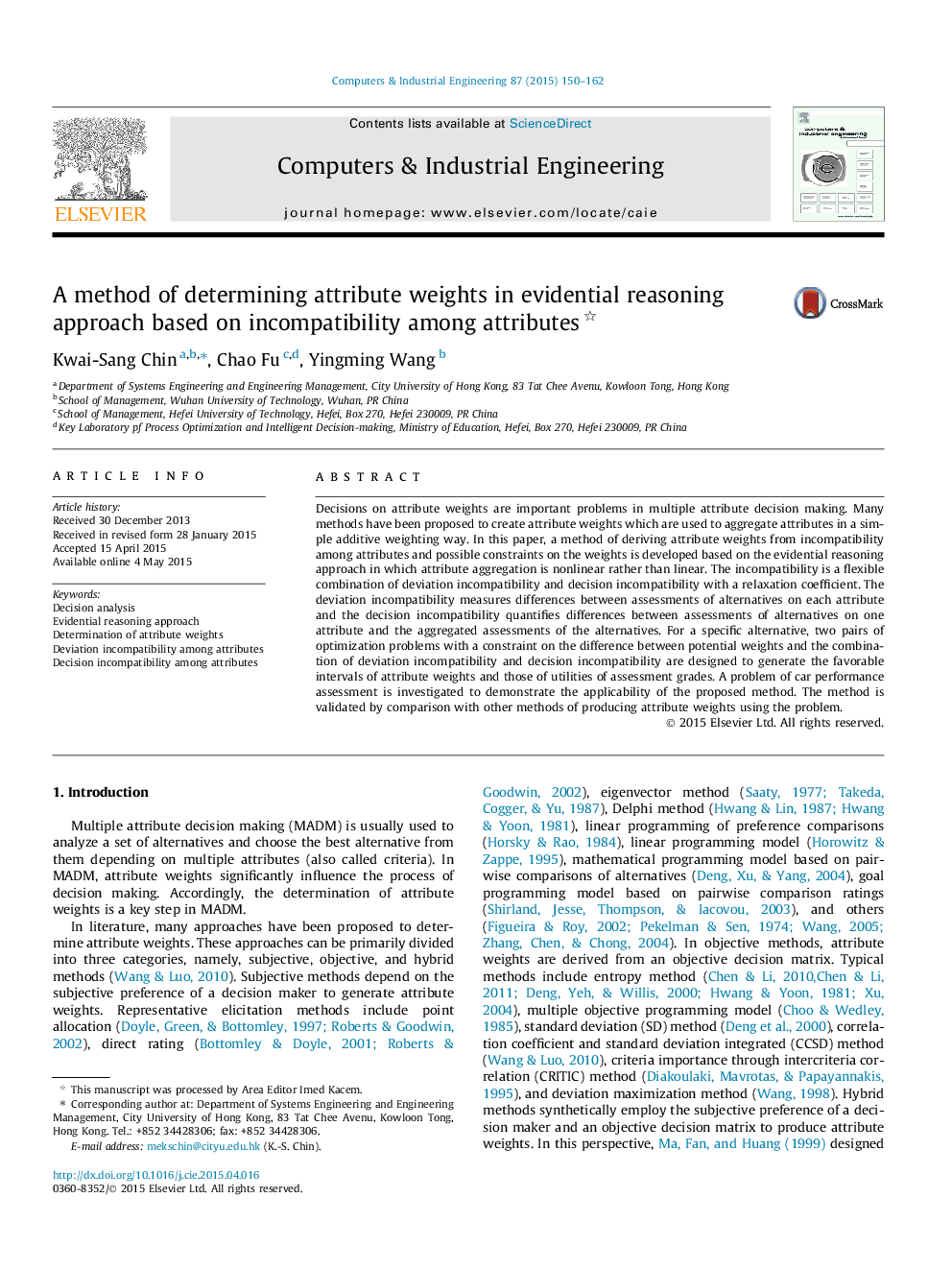| Article ID | Journal | Published Year | Pages | File Type |
|---|---|---|---|---|
| 1133551 | Computers & Industrial Engineering | 2015 | 13 Pages |
•Determine attribute weights in evidential reasoning approach.•Combine deviation and decision incompatibilities to generate attribute weights.•Use favorable intervals of attribute weights for sensitivity analysis.•Use favorable intervals of utilities of assessment grades for sensitivity analysis.•Handle subjective constraints on attribute weights and assessment grades.
Decisions on attribute weights are important problems in multiple attribute decision making. Many methods have been proposed to create attribute weights which are used to aggregate attributes in a simple additive weighting way. In this paper, a method of deriving attribute weights from incompatibility among attributes and possible constraints on the weights is developed based on the evidential reasoning approach in which attribute aggregation is nonlinear rather than linear. The incompatibility is a flexible combination of deviation incompatibility and decision incompatibility with a relaxation coefficient. The deviation incompatibility measures differences between assessments of alternatives on each attribute and the decision incompatibility quantifies differences between assessments of alternatives on one attribute and the aggregated assessments of the alternatives. For a specific alternative, two pairs of optimization problems with a constraint on the difference between potential weights and the combination of deviation incompatibility and decision incompatibility are designed to generate the favorable intervals of attribute weights and those of utilities of assessment grades. A problem of car performance assessment is investigated to demonstrate the applicability of the proposed method. The method is validated by comparison with other methods of producing attribute weights using the problem.
